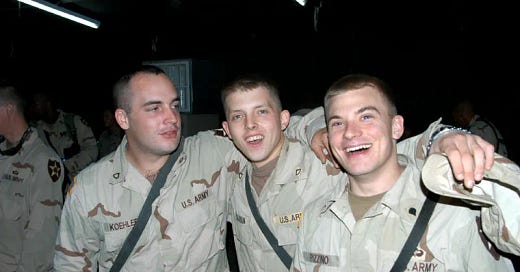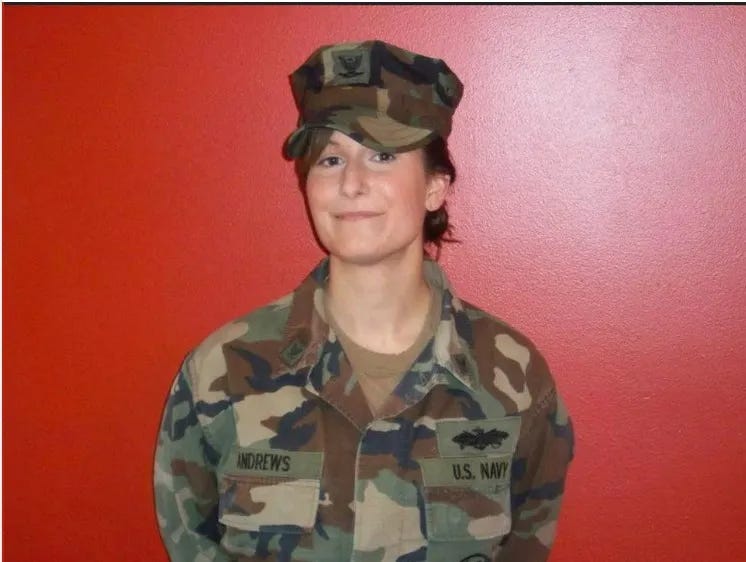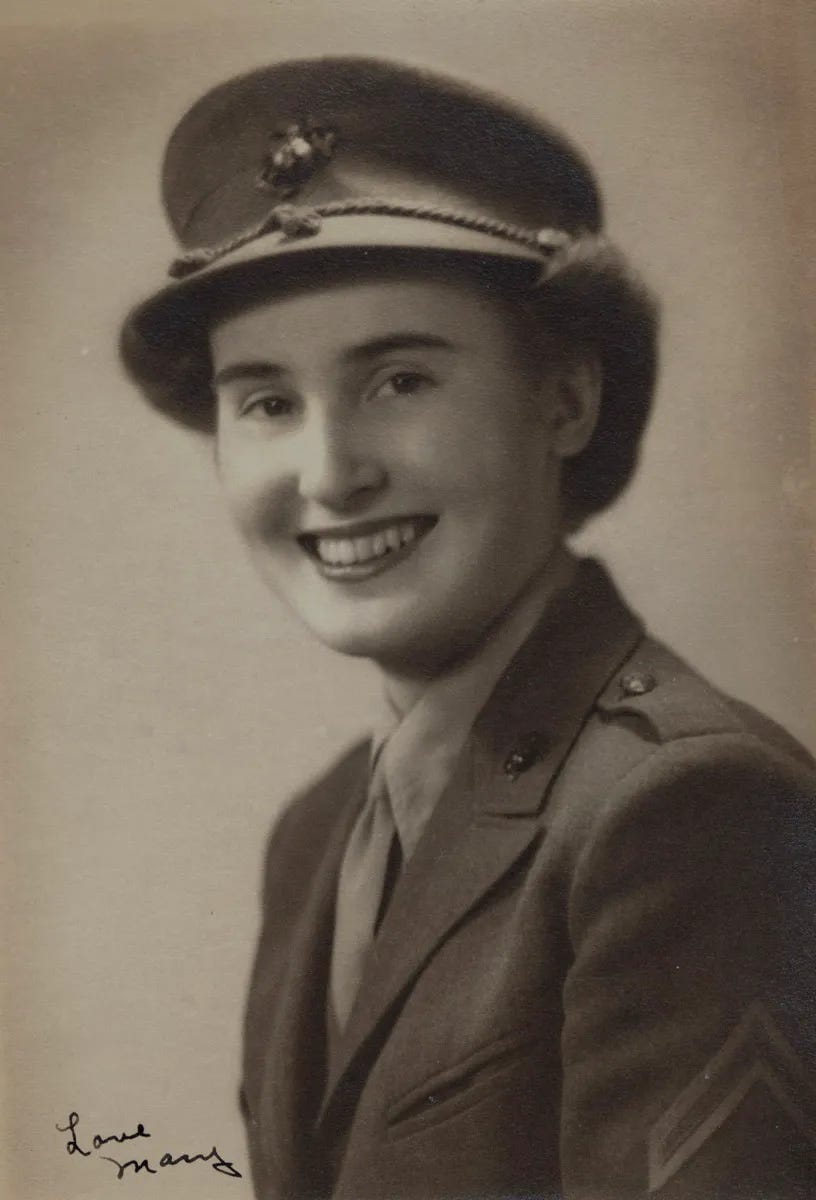Why Military Veterans Will Help Your Business Thrive
Skills, training, savvy, discipline, energy—vets have it all
Why Veterans as employees and entrepreneurs?
Verterans spend years learning and practicing the exact skills you would look for in a trusted partner. Military personnel are cross-trained in multiple soft and hard skills and have real-world experience in varied tasks and responsibilities. But understand that they also learn intangibles like how to put in a hard day’s work. They appreciate knowing they did the job to the best of their capability, and aren't just looking to get rich quick. Sounds like a real asset in the workplace, doesn’t it?
Ingrained strengths the veteran brings to the workplace usually include
Teamwork for safety and efficiency — the cornerstone of military effectiveness and part of their daily lives
Stability — being patient and remaining calm under duress
Problem-solving — quickly and creatively
Adaptability — with a determined outlook
Follow rules and schedules
Respect for diversity
Self-confidence — a real-time evaluation of self and abilities
Disciplined organizational skills coupled with follow-through and follow-up
Work ethic — an amazing drive to get it done right the first time
Veterans come equipped with impressive skills
Now that you know what’s inside a veteran’s spirit and spine, have a look at their actual hard skills critical to moving a business forward. Service members possess a whole portfolio of cross-functional skills. They learn to see every assignment’s value and take its impact on the mission seriously. Veterans have had extensive training and experience in any combination of these areas:
Tech skills — computers and systems, electronic devices, programming, engines, heavy equipment, design
Cyber security
Mechanical skills — machines, vehicles, production equipment, automation
Military STEM areas—science, technology, engineering, and math
Medical
Management
Troubleshooting problems in all kinds of conditions
Building and construction
Planning and development
Training, counseling, and mentoring
Creative skills like photography, writing, or music
Keep in mind that when you work with veterans as employees and entrepreneurs, they come to the table thoroughly trained with effective experience. You save money, time, and resources from day one. At Veteran.com, you can learn how to tie your worker needs to the entire list of military job classifications.
Military speak—how to translate a veteran’s resume to real life
A military resume or CV will have terms you might not be familiar with. You can translate.
Advanced individual training means advanced skills course(s) in their job specialty.
BLC, PLDC, BNOC refer to different basic and intermediate leadership and management courses. ANOC is the advanced course.
OAC is entry-level officer training.
Combined Arms Staff College means senior management leadership school.
Command and Staff College advances the skills of those senior leaders, while War College is an executive leadership school.
TYD/TAD tells you they have had business travel experience.
PCS refers to their relocation experience and expertise.
OER/NCOER shows they’ve worked with performance appraisals.
Commanded indicates they directly managed and supervised a group of workers.
Battalion, unit, and platoon mean organization, agency, and department in business-speak.
Combat isn’t just another word for hostilities. Combat experience is evidence of successfully moving through hazardous conditions, conflict, problem-solving, and critical thinking challenges.
About veterans in the workforce
If you’re going to work with veterans, it’s important that you understand why so many are out there looking for opportunities.
In the American workforce, there are nearly 9 million workers. About 6% are veterans, according to the Department of Labor blog. That represents fewer veterans at work now than 20 years ago. Yes, we acknowledge that large numbers of baby boomer veterans have retired. Don’t forget that retired veterans looking for business opportunities are a gold mine of talent and practical wisdom.
More veterans choose these occupations than do nonveterans:
Business management and financial operations — preferred by 20% of veterans and 17% of nonveterans
Logistics: coordinating and moving people, materials, inventory, and equipment from one location to another — a preferred choice of 13% of veterans and 7% of nonveterans
Installation, maintenance, repair — 7% of veterans and less than 3% of nonveterans
Production of goods — preferred by 7% of veterans and 5% of non
As for women veterans, they have a statistically higher preference than men in professional and related occupations and in office or administrative support occupations. About 33% of women veterans choose those, compared to less than 20% of men.
The Department of Labor says veteran unemployment is between 3% and 5%, down from 12.5% during the pandemic. A close look at unemployment shows it’s racially and ethnically skewed, just as much as nonveteran figures are.
The US Government is smart enough to fill more than 30% of its jobs with qualified veterans, and there are great reasons for you to use such a strategy.
Is your niche likely to attract skilled veterans?
Veterans transition successfully into civilian business
One Army veteran trained in maintenance and repairs. He worked on large equipment and became a skilled painter. First, he learned how to apply paint and how to select the proper tools and materials. He scheduled jobs efficiently, finished on time, and then inspected and evaluated his work. During his service to civilian transition, he worked with a painting contractor. Now, as an entrepreneur, he owns a lucrative painting business with a crew of 10.
A Navy service member was assigned to the Seabee team — AKA the Construction Battalion (CB). Before deploying to Iraq, he worked on base and went to school, learning construction and project management. He got hands-on experience when his team volunteered to build community parks and a local church. He and the team built and deconstructed military bases in Iraq as troops moved around combat regions. After service, this highly sought-after tradesman joined Invitation Homes (a national residential property rental company) as a home inspector. Ten years later, he’s their respected foreman overseeing the company’s Midwest region.
Dianna Flett is a well-known entrepreneurial veteran. A retired Army Lieutenant Colonel, she led soldiers in strategies and tactics worldwide, earning many decorations and commendations.
Dianna’s service landed her in many of the trainings and courses mentioned above. That shaped her skillset for civilian success. Later, she worked with the FBI as a team leader, teaching leadership and management strategies to intelligence analysts. That experience took her into her own civilian business, Girl Smarts, which supports and mentors pre-middle school girls. The company’s whole-girl approach prepares preteens for the challenges of adolescence.
Where do you find these talented men and women?
We have a few ideas to get you started working with veterans. If you know a hero who needs a leg-up, pass these job links to them.
Dept of Labor helpful hiring resources
ACP — national non-profit mentoring agency for thousands of veterans each year
Take advantage of a treasure trove of skilled people
The lack of a college degree is one main reason veterans cite for missing out on jobs suited to their experience and training. That missing sheepskin should never prevent an employer or entrepreneur from hooking up with a skilled veteran candidate. When you, as an intuitive and forward-thinking business person, translate military experience into business world success, a new world opens for you and the veteran.
Take a giant step into the future and start talking about possibilities and opportunities with veterans eager to succeed along with you. Hire a veteran.
[Editor’s note: The author comes from a long-time military family whose service stretches from World War I to Operation Iraqi Freedom and beyond.]








An amazing story Maryan on why veterans have great skills. Thank you for this meaningful article on highlighting veterans.